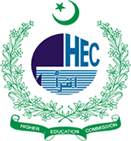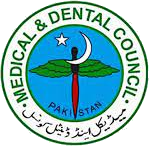Knowledge, Awareness and Misconceptions Regarding COVID-19 Among Medical Students of Pakistan
DOI:
https://doi.org/10.51846/jucmd.v1i1.1440Keywords:
COVID-19, Medical Students, Pandemic, Social MediaAbstract
Objective: To assess the understanding and knowledge of medical students regarding COVID-19 and to determine their ability in applying that knowledge as they could serve as potential workforce.
Methods: A quantitative approach was used to evaluate the knowledge of the medical students. The data was collected by an online cross-sectional survey conducted among students from 9 medical colleges across all provinces of Pakistan. The sample included 627 respondents. The survey was divided into two parts, the web-based information that a medical student acquires by self-motivation and information derived from social media that needs critical evaluation and further research to determine its authenticity. The second part included evaluation of knowledge about the pandemic in general with a focus on COVID-19 and its application.
Results: There were a total of 627 respondents from medical colleges across Pakistan. The majority 98.1% (n=615) were aware of pandemic and 87% (n=546) were actively following the emerging evidence of COVID-19. An important feature was that 82.8% (n=519) of the medical students were willing to check for the authenticity of information. More than two third of medical students had adequate knowledge regarding importance of testing, vulnerable population and protective measures required to prevent spread of COVID-19. Respondents responded to observing the preventive measures with 91% observing social distancing, 86% maintaining personal hygiene and 72% wearing masks.
Conclusions: Most of the medical students in Pakistan keep themselves abreast with developments in the pandemic. They are capable of understanding the scientific basis behind COVID-19 and have the ability to differentiate between scientific and nonscientific information.
Downloads
Published
How to Cite
Issue
Section
License
Authors retain copyright and grant the journal right of first publication with the work simultaneously licensed under a Creative Commons Attribution 4.0 International License that allows others to share the work with an acknowledgment of the work's authorship and initial publication in this journal.
Authors are able to enter into separate, additional contractual arrangements for the non-exclusive distribution of the journal's published version of the work (e.g., post it to an institutional repository, in a journal or publish it in a book), with an acknowledgment of its initial publication in this journal.
Authors are permitted and encouraged to post their work online (e.g., in institutional repositories or on their website) prior to and during the submission process.







